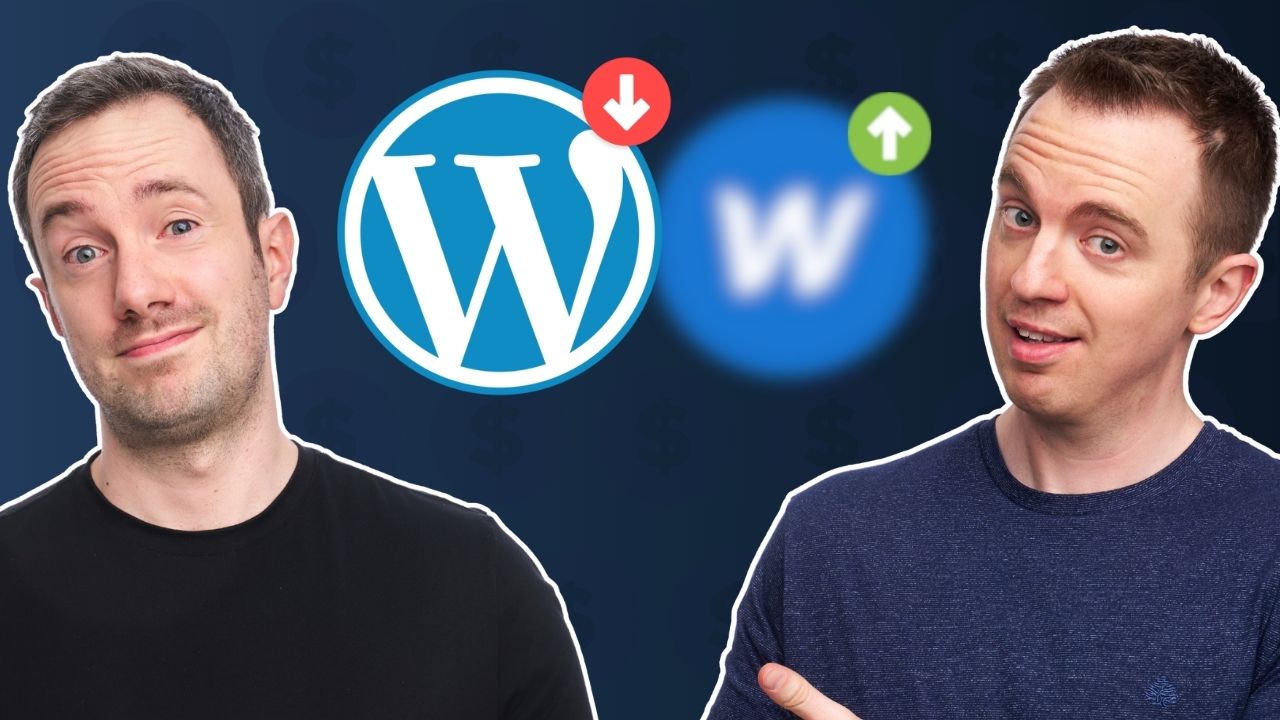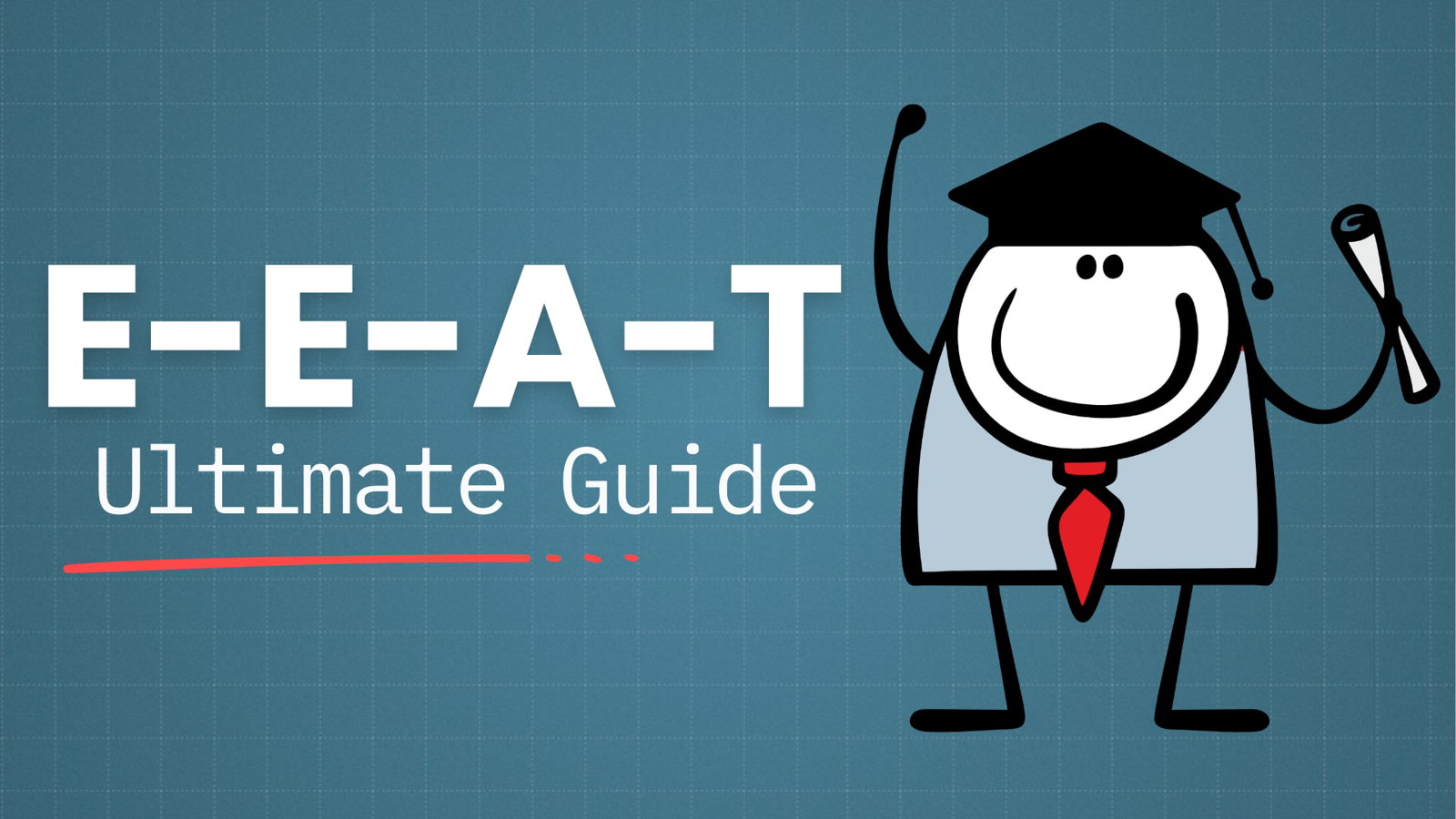What You Will Learn
- Why smaller can afford to target the keywords that bigger sites can’t
- How having fewer categories can help us outrank higher authority sites
- Why and how you should build links to your money pages
- Why it costs big companies more to produce the same content as we produce and how we can take advantage of this
- How a site with personality can overcome a site with more resources
Competition is always a factor when starting an authority site.
Can you beat the big players? Should you even bother taking them on?
In this week’s podcast, Gael, Perrin and I look at the changing landscape of authority sites? Are more big companies beginning to adopt the authority site model? What happens if they do? Is there still room for the little guy?
Are Big Companies Starting to Target Our Money Keywords?
A couple of years ago, an article on Viperchill caused alarm in the authority site community.
‘How 16 Companies are Dominating the World’s Google Search Results’ touches upon Hearst Media. It discusses how they launched bestproducts.com, and linked to it from their other large sites (like Esquire, Elle, and Cosmopolitan.)
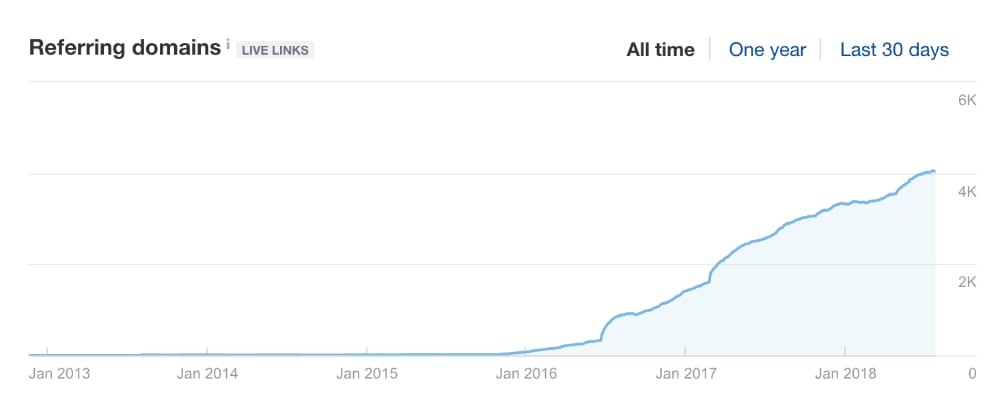
You can see how rapidly the site began to acquire links.

It’s now a 74 DR site, and getting an estimated 2.7 million visits per month from organic search.
The success of bestproducts.com, thewirecutter.com, and CNET freaked a bunch of site owners out.
What if the big media companies discover what we do? Will they come in heavy handed with huge resources and wipe us out of the SERPs?
Well, more than two years on from the launch of bestproducts.com, we’re not really feeling the squeeze.
Sure, there are more big sites appearing, but they tend to be targeting the tech niche disproportionately.
At the moment, we’re not seeing many examples of smaller sites being wiped out.
But what if more big sites begin to emerge?
Can Small Sites Beat The Big Sites?
Spoiler: yes!
We’ll touch more on how later, but, for now, I’m going to reassure you by showing some examples of small sites outranking some massive sites.
Best Crossbow source is beating Walmart and Amazon for ‘barnett quad 400’.
We have also found:
- Herepup beating the American Kennel Club for ‘Pomeranian price.’
- Dripped Coffee beating bestproducts.com for ‘best coffee maker.’
- Best Power Banks beating GearBest for ‘best power banks.’
- Drone Enthusiast beating The Wirecutter for ‘drone reviews.’
How Do Small Sites Beat Big Sites?
Keyword Research
To beat the big sites with keyword research, you need to be selective.
Don’t go head to head with the big sites unnecessarily. If a big site is ranking first, maybe don’t target that keyword.
Target keywords that have lower search volume. The chances are, big sites won’t target these keywords because they don’t generate significant revenue (from a big brand’s perspective).
Instead of targeting ‘best perfume’, try:
- ‘Best perfume for teenage girls’
- ‘Best perfume for your grandmother’
You have more chance of ranking for these smaller, specialized keywords.
Also, there’s probably more chance your target audience will click through to your article, as it’s specifically targeted at and relevant to them.
You’d be surprised at the return on investment of this type of content.
Because, we don’t have all the overheads of the large companies (offices, large salaries, benefits, etc.) it’s a lot cheaper for us to target these keywords.
The big companies can’t afford to go for the small wins because they don’t have a major impact on the bottom line. For an independent entrepreneur, $100-300 an article like that might make per month can be significant.
Content
Big companies are lazy. Or maybe they’re just not thorough.
You’ll find that they tend to lean heavily on their authority to rank. They’re not ranking because they have the best content.
You can rank over the long term by:
- Having better-optimized content
- Having longer, more detailed content
- Adding more personality and personal experience
While sites like The Wirecutter are exceptions, you’ll find most large sites are taking more of a scattergun approach with low-quality content to see what ranks. They don’t care if it doesn’t. Although they have more resources, this generally means they spend less per individual piece of content.
We can concentrate more, focused resources on each piece of content.
We can put more effort into creating truly epic content that will continue to rank in the long term to give us that return on investment.
Relevance
This ties in with content. Where the big sites are taking the scattergun approach, we can take the sniper approach.
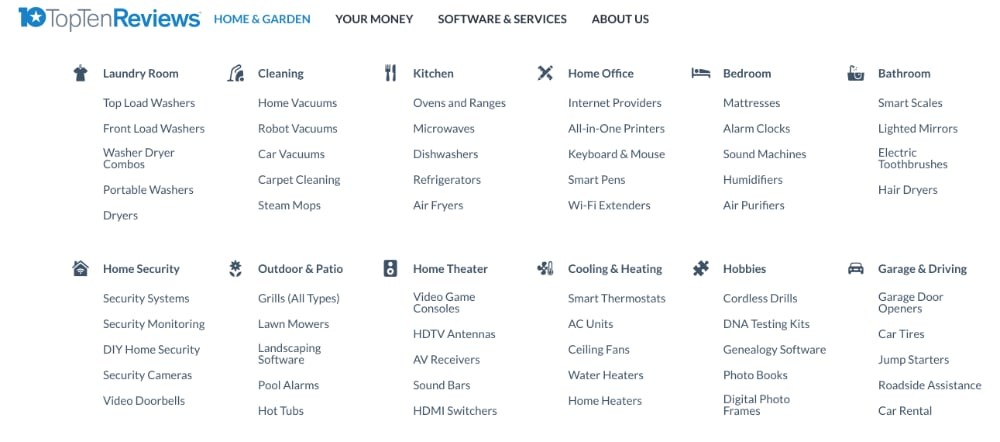
There’s no way they can show Google they’re an expert in every single category on that site.
They’ve gone broad. Combat this by going narrow.
There’s a reason about.com was broken up into smaller, branded sites. No-one could get personally invested in about.com – it’s literally just about stuff!
They’ve broken that site down in a number of smaller sites (like The Spruce). The hope is that these narrower, branded sites will generate a returning, loyal audience, and rank better because they are more relevant.
There’s definitely a balance to be struck.
Don’t go hyper-niche, but it might be worth choosing fewer categories. Cover these categories in more detail to convey your expertise.
Personal Branding And Personality
There’s an old sales saying: ‘people buy from people’.
AH Pro member Kevin Espiritu runs Epic Gardening. He’s made himself the face of the site. Kevin creates videos, runs a podcast, and even has a book deal in the works.
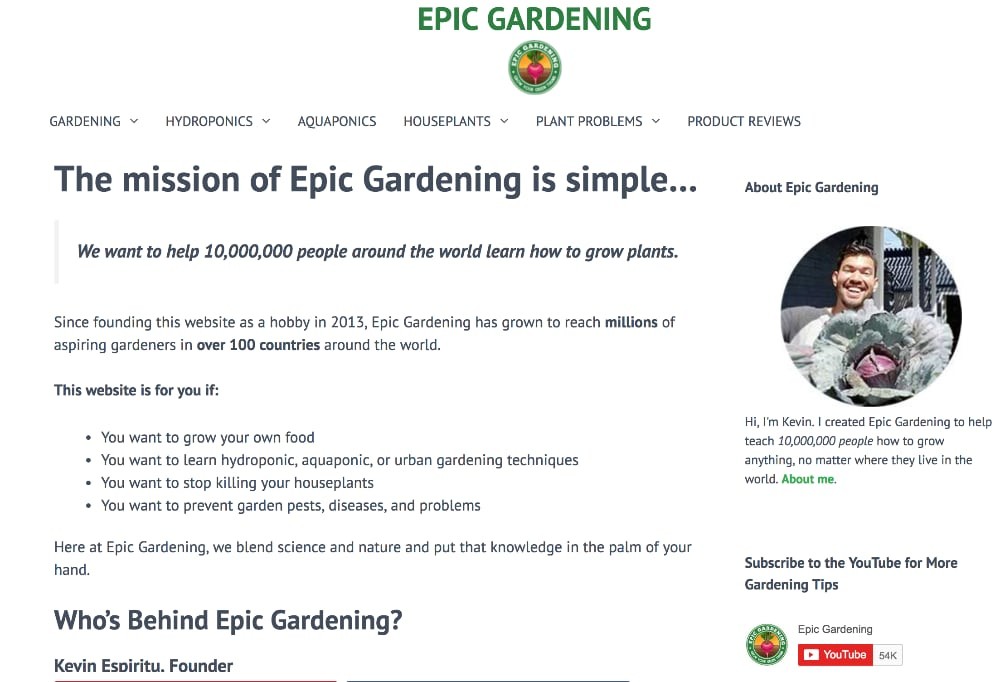
While you can build a site based on personality, the big sites almost have to do the opposite.
They’re churning out such a volume of content that they need everything to sound the same.
They have brand guidelines, with complex editorial processes.
They’re essentially removing the personality from the writing.
Suzy Quilts is a friend of Perrin.
She started blogging because her fans on Instagram were asking for more. Suzy’s site is making a lot of money. She has a deal with a Swedish sewing machine company and has even had a quilt in a Toyota ad.
How cool is that?
This has all been built with her personal brand.
It helps to think of Kevin Kelly’s concept of 1,000 true fans.
He states that you don’t need a huge audience but a highly engaged, small group of fans.
Build a small fan army.
Link Building Scrappiness
Although it might be slightly outdated now, Perrin found Ahrefs to have the best keyword difficulty score.
Ahrefs focuses on page level links.
Links on the page level seems to be a much better indicator of whether a page will rank than links to the domain as a whole.
While it’s easier for big brands to acquire links naturally. They don’t tend to do link building in the same way that we do.
Our advantage comes in having fewer, important pages.
We’ll feel the pain more than the large sites if one of our money pages drops from first position to sixth.
So, we can shift focus to resolve this. If links are the problem, we can launch a guest post or infographic campaign to build links to that particular page.
Instead of building links, bigger sites seem to be buying smaller sites and redirecting them to their own domains (as happened when Healthline purchased Authority Nutrition).
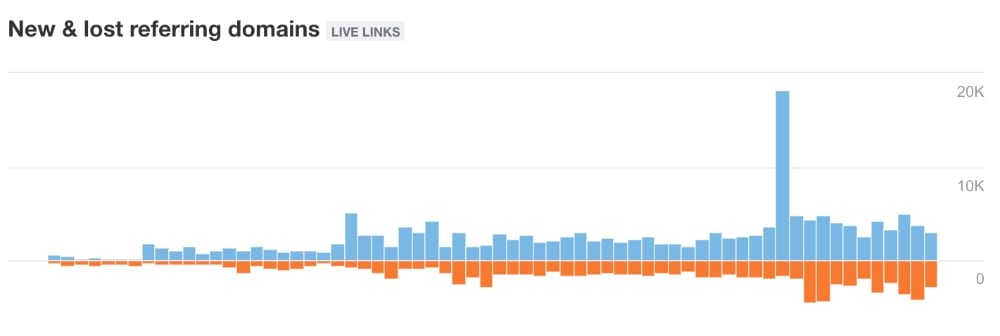
If you build page level links, you can rank for a higher percentage of your articles. This will mean you achieve an ROI on more of your articles than the big sites.
Flexibility
When something happens in your industry, your audience will usually want to know about it.
Usually, a lot of news articles will appear and start ranking. But, these are usually just a short summary of events.
Readers want analysis.
As a small site, you can delve deeper into the issue, and give an expert opinion on the problem.
It’s a good way to get on your audience’s radar. Especially when you’re just starting out.
Costs
Big companies may have more money, but they also have more costs.
Think about it; big companies tend to have offices in major cities and employees on salaries to match.
As smaller companies, we can take advantage of not having an office. We can build a remote workforce. You can gain access to high-quality people all over the world, give them freedom of location, and, often, this means they’re available for a significantly lower salary.
Legal Stuff
Suing small companies doesn’t make headlines, and they don’t have all that much money to go after.
There’s no great incentive in pursuing small companies.
Don’t get me wrong, everyone should fully comply with the law and take the advice of a lawyer where necessary.
But, government institutions are more likely to target the big companies.
How To Take On The Big Sites
All in all, you need to remember why you are creating a site.
For most people, it’s the prospect of becoming independently wealthy and having control over your life. You don’t necessarily have to beat the big sites.
There’s enough pie to go round.
But, if you do want to beat the big boys, here’s how best to do it:
- KW Research – go after the smaller or more specific keywords.
- Content – spend more per piece of content and make each piece of content better.
- Relevance – create narrow sites or cover categories in more depth.
- Personality and personal branding – use your personal brand to create a more engaged audience and explore other business opportunities.
- Costs – leverage your low overheads to invest in the things that matter — content and links.
- Page level link building – build links on a page level to make sure your content keeps ranking.
